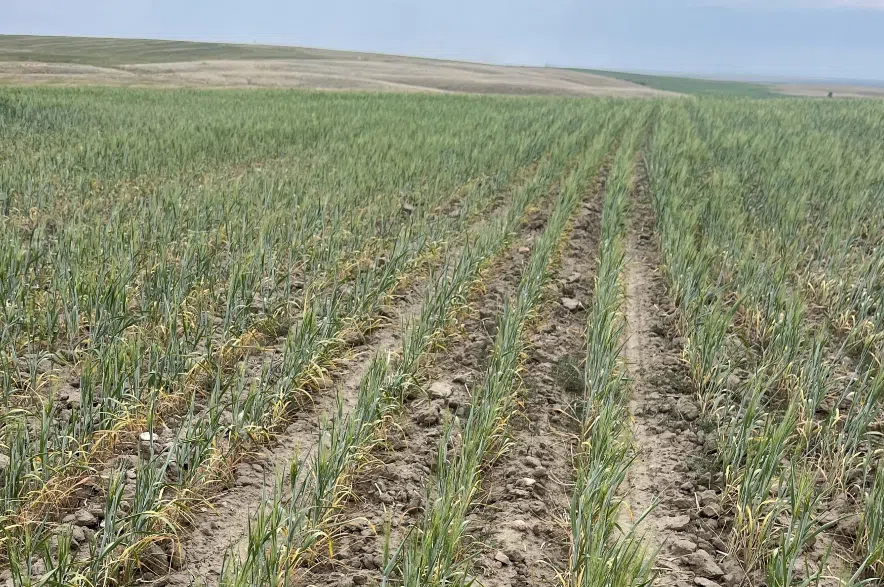Farmers in Saskatchewan’s RM of Big Stick say they’re running out of patience — and options — as the drought in the area stretches into a ninth relentless year.
Council members Tyson Jacksteit, Stacy Jacksteit, and Ross Martin recently met with Saskatchewan Agriculture Minister Daryl Harrison over Zoom, hoping for real solutions. Instead, they say they walked away feeling dismissed and frustrated.
Read more:
- ‘Can’t buy your way out of drought’: Southwest farmers continue to deal with dry conditions
- ‘This is different’: Southwest Sask. famers call for help after nearly a decade of drought
- ‘Worst we’ve seen’: Maple Creek, Enterprise join growing list of RMs declaring drought emergency
“All they (the government) wanted to talk about was the programs they already have. But those programs don’t work for a drought that’s lasted this long,” said Tyson Jacksteit, who farms in the RM.
“It’s like they admit the programs aren’t enough, but in the same breath they tell us to keep using them. Do they even hear themselves talking?”
Jacksteit calls it the most disappointing meeting he’s ever attended, and says the government seems disconnected from what’s happening on the ground.
“People out here need help, and it feels like they don’t care,” he said.
“We’re not looking for handouts, we’re looking for programs that actually fit what we’re going through.”
In the past week, temperatures in the area have soared into the high 30s, burning crops and leaving some fields so stunted farmers can’t even cut and bale them. Tyson and others say an in-person visit from the minister would show the true scale of the damage, but that hasn’t happened.
Councillor Stacy Jacksteit said the problem is that government support hasn’t evolved for modern realities like climate change.
“These programs have been in the system since the ’80s, and they haven’t changed very much,” he said. “Everything changes, global warming, that changes over the years. But these programs haven’t kept up.”
Programs like AgriStability depend on a five-year average of production history, which keeps dropping lower with every dry year, meaning many farmers never qualify for payouts.
AgriInvest requires farmers to have grain to sell and money to invest, and crop insurance has seen falling guarantees even as premiums rise. Stacy says durum wheat guarantees, for instance, have dropped about 20 per cent this year.
Martin, who’s aged 60, says he’s seen droughts come and go, but even he admits this one feels different.
“When you have consecutive years of drought and you can’t build up an AgriStability inventory, it comes back to bite you,” he said.
“We’ve got to keep pushing the government, because people’s livelihoods are at stake.”
Despite repeated request for comment from CJME, Agriculture Minister Daryl Harrison did not respond before publication.
Read more:











